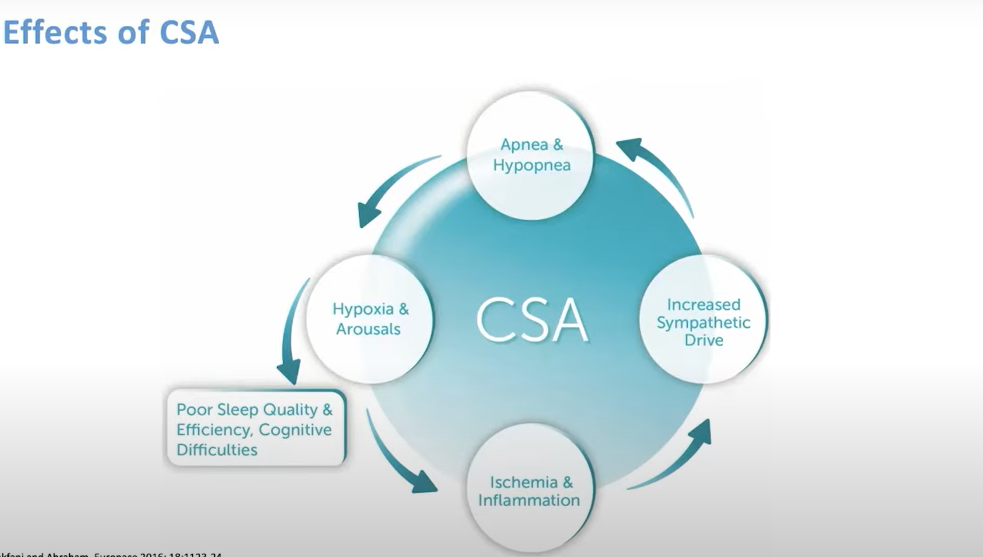

Central sleep apnea (CSA) can be quite a challenging sleep-disordered breathing condition that can lead to several complications. Unlike obstructive sleep apnea, it doesn't have some form of physical blockage or obstruction.
Often, Central Sleep Apnea occurs in patients that are already suffering from some form of a medical condition. For example, people with congestive heart failure and other cardiovascular diseases are prone to developing central sleep apnea. However, people with neurological disorders and conditions also tend to develop it.
Let's understand central sleep apnea syndromes better:
This kind of Central Sleep Apnea is generally temporary and subsides when you stop taking medication. However, prolonged use of medication without paying attention to CSA can also make it permanent or worsen it. If you use any of the following, you might have a risk of central sleep apnea:
Unfortunately, central sleep apnea is heavily related to various medical conditions. So, if you have a family medical history or your own, you have to be careful. Here is the following health condition that most likely develops some form of central sleep apnea:
High Altitude Periodic Breathing is a sleep disorder that makes the person take deep breaths at first and then engage in shallow breathing. Gradually, it progresses to pauses in breathing. It is also known as cheyne stokes breathing. But the two can be different, too.
If you are 8,000 feet (2,438 meters) above the sea level, it is easier for you to develop high-altitude periodic breathing during sleep. After all, your respiratory system has not adapted to such heights and can pose problems for you.
Idiopathic central sleep apnea occurs without any underlying medical condition or medical treatment. Often, it is seen in older people mainly because muscles that control breathing grow weaker as they grow older.
As a result, elder folks have to rely on BiLevel Positive airway pressure treatment or automatic machines. There are also Atrial Fibrillation and adaptive servo-ventilation that helps reduce breathing effort required in old age and stimulate breathing for the ease of people.
You don't normally have to worry about CCHS as it occurs due to mutation and first surfaces in infants. You are more likely to have other forms of central sleep apneas and abnormal breathing patterns than develop CCHS.
Continuous positive airway pressure or CPAP therapy is a treatment option primarily used for Obstructive sleep apnea. However, continuous use of CPAP treatment can lead to the development of CSA in patients.
At that point, it is known as complex sleep apnea, also known as treatment-emergent central sleep apnea. As the risk factors increase, surgical procedures are often required for the treatment emergent central sleep apnea.
As we all know, there are many side effects of Central sleep apnea. For example, daytime sleepiness, sleep disorders, poor quality sleep, headache and more. It can even lead to many other medical conditions like strokes and heart failure.
Oxygen therapy or supplemental oxygen is the necessary treatment option. If you suspect that you might have central sleep apnea, or even OSA, it is time for you to visit the sleep specialist and get checked.
Leave a comment